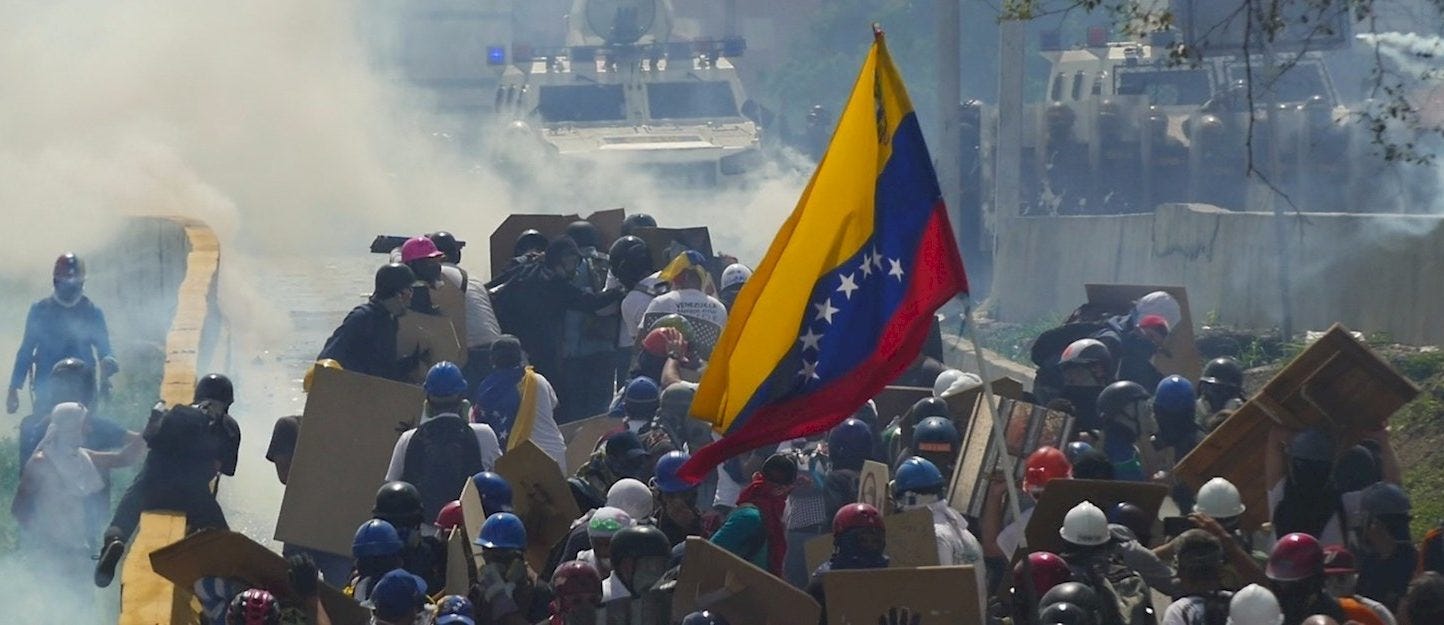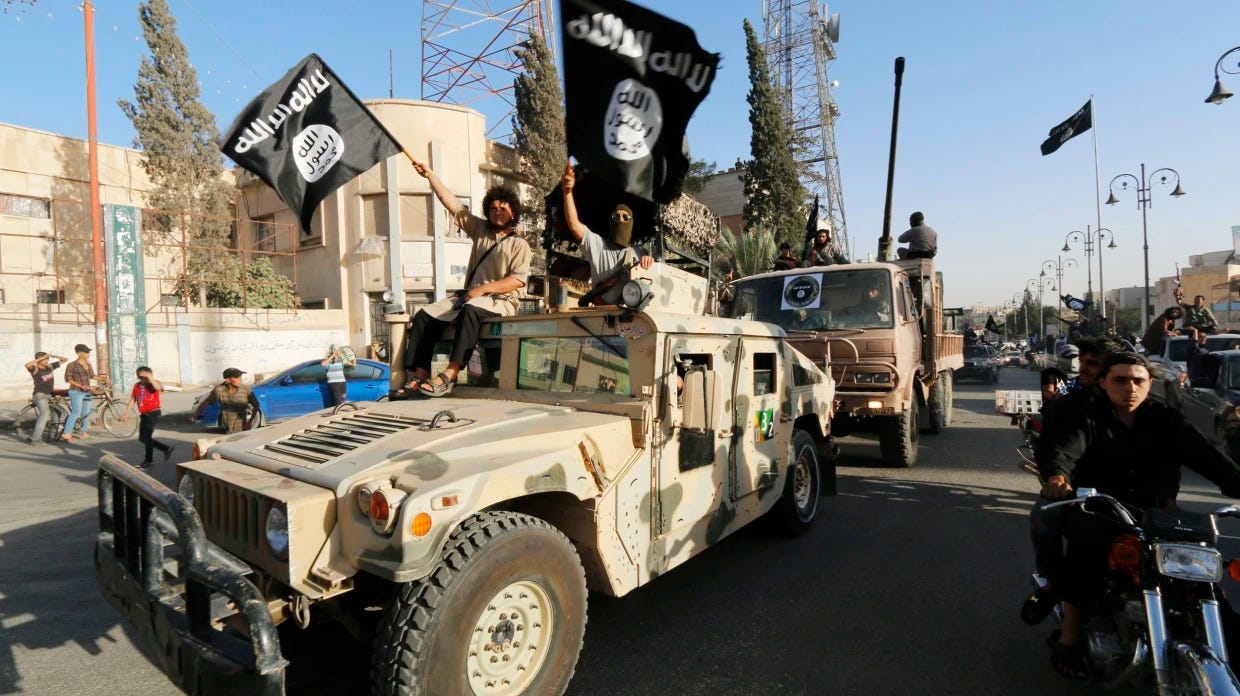US Signals it No Longer Cares About Human Rights
After Russia invaded Ukraine, it kidnapped thousands of children and forcibly relocated them to more than 100 different locations around the massive country. With the backing of the State Department, which funded it, Yale's State Humanitarian Research Lab tried to help. It tracked 35,000 of the Ukrainian children by using satellite imagery and biometric data, planning to give information about their whereabouts to European law enforcement so that children could be reunited with their families. As it documented everything from reeducation camps to forced adoptions, it also gathered evidence of war crimes for International Criminal Court prosecutions.
But then the Trump administration abruptly cut the lab’s funding, shutting down the program on March 28. The transfer of information to European authorities was halted mid-process.
And that’s just the tip of the iceberg when it comes to the United States’s retreat from its decades-long role as the world's human rights watchdog.
Take the State Department's annual human rights reports. They long served as a vital source of information, keeping Congress, businesses, NGOs, and foreign governments informed about violations of human dignity around the world. But now these reports are being gutted, with sections on corruption, political prisoners, and restrictions on movement all eliminated. "What this is, is a signal that the United States is no longer going to [pressure] other countries to uphold those rights that guarantee civic and political freedoms," says Paul O'Brien, executive director of Amnesty International USA.
Or consider Secretary of State Marco Rubio's sweeping reorganization of the State Department last month, which dismantled much of America's system for detecting and monitoring global atrocities. The Bureau of Conflict and Stabilization Operations, which identified potential hotspots before they exploded into crisis and provided early warnings about regions where extremism was taking root? Gone. The Office of Global Criminal Justice, which for nearly three decades coordinated evidence to prosecute war criminals and dictators? No more.
The administration also vacated the congressionally mandated position specifically created to track Russian atrocities in Ukraine and coordinate America's response. These aren't just inconsequential bureaucratic changes — they effectively give a green light to war criminals and authoritarian regimes worldwide. And for everyday Americans, this abdication is likely to come with a hefty price tag: higher costs at the grocery store, increased security risks, and the erosion of values that have long protected American interests abroad.
"The loss of our work is another win for those who want to obscure the truth and who want to prevent accountability," says Nathaniel Raymond, executive director of Yale’s Humanitarian Research Lab. But his team’s work wasn’t just about documenting history — it was also about preventing future atrocities. When one country successfully kidnaps tens of thousands of children without consequence, others take note.
The civil wars in Syria and Yemen offer sobering lessons in what happens when we miss early warning signs. What began as government crackdowns on protesters in Syria eventually spawned ISIS, triggered a refugee crisis that destabilized Europe, and created conditions for extremism that reached American shores. In Yemen, Iranian-backed Houthi rebels turned the country into the world’s most dire humanitarian catastrophe before setting their sights on US ships in the Red Sea protecting Israel after the October 7 attacks.
History shows that human rights violations often precede security threats. The Taliban's treatment of women wasn't just a moral issue — it signaled the emergence of a regime that would harbor the terrorists responsible for 9/11. North Korea's gulags aren't just humanitarian disasters — they sustain a system that threatens regional stability with nuclear weapons.
Without robust monitoring capabilities and an emphasis on human rights, America loses crucial intelligence about emerging dangers and an opportunity to help reduce them before they turn into disasters. We're essentially waiting for problems to metastasize rather than addressing them early, when diplomatic pressure might still work.
The economic ripple effect
The connection between human rights violations abroad and your grocery bill isn't immediately obvious, but it's real. Countries that flout international law tend to be unstable trading partners. When governments can seize property, imprison workers, or shut down businesses at will, supply chains break down and prices spike.
Take Venezuela: What began as political repression evolved into economic collapse, disrupting oil markets and triggering inflation across the Americas.
Or consider China's persecution of Uyghurs — a Muslim minority group of about 12 million people in the Xinjiang region whom China has subjected to mass detention, forced labor, compulsory sterilization, and other forms of systematic oppression. This hasn't just been a humanitarian catastrophe; it's complicated global supply chains as companies have scrambled to avoid importing products made with forced labor, driving up costs for consumers everywhere.
Many everyday products come from countries with serious human rights issues. Your smartphone likely contains minerals from regions where armed groups use forced labor. Your morning coffee might come from farms where children work instead of attending school. Affordable clothing? It could be sewn in factories where workers lack basic protections.
State Department monitoring has traditionally helped companies navigate these ethical minefields while keeping prices reasonable. Without it, businesses face a stark choice: ignore potential abuses and risk consumer backlash, or implement costly independent monitoring that drives up prices.
When creating foreign aid programs in 1961, President Kennedy wrote to Congress about “our moral obligations as a wise leader and good neighbor, ... our economic obligations as the wealthiest people in a world of largely poor people, ... and our political obligations as the single largest counter to the adversaries of freedom.” To “fail to meet those obligations now,” he said, “would be disastrous; and, in the long run, more expensive." His logic applies equally to human rights monitoring: the cost of prevention is almost always less than the cost of reaction.
Conversely, ignoring human rights violations often proves costly in the long run. America spent decades tolerating authoritarian regimes in the Middle East for the sake of stability and oil access. The result? Extremism flourished in the shadows before erupting in terrorist attacks that cost American lives and led to two wars and trillions of dollars in military spending.
Congress still has oversight authority and could restore funding for critical programs. Several Republicans, including Trump ally Sen. Lindsey Graham and even Rubio himself, have previously supported these offices and initiatives. The irony isn't lost on human rights advocates: "When I ran the State Department's human rights bureau, few Senators were more interested in our work than Marco Rubio," Tom Malinowski, who led the bureau under President Obama, recently wrote on X.
Every administration has the right to reorganize government agencies and set its own priorities within bounds set by Congress. But Americans deserve an honest accounting of the trade-offs involved. Cutting human rights monitoring might save money in the short term, but history suggests we'll pay a higher price later. In an interconnected world, what happens overseas doesn't stay there. It reaches American kitchen tables through higher prices, security vulnerabilities, and the gradual erosion of values that have long defined American leadership. As Americans learn how these cuts affect their daily lives, pressure may build for reconsideration.









This was a very interesting read, and one that rang a bit hypocritical to me. I come from a country that was intentionally destabilized by the US to protect their financial interests in my country. A dictatorship was put in place, soldiers were trained, we were launched into a decades long civil war with atrocities so great against our indigenous communities that it’s historically known as the silent holocaust, and it was all done on US dime and with US approval. Orphaned children were experimented on and left without any care for the diseases they were given by US doctors with no accountability to this day. To hold the US up as a beacon of hope for the fight to uphold human rights and as the standard for upholding human rights world-wide feels like a slap in the face to what my people have been subjected to. I’m not saying we shouldn’t care about these vital programs being gutted, or that we as a people should turn a blind eye to the kidnapped children of Ukraine and human rights violations around the world. We should absolutely care. Every child deserves peace and stability. I just wish there was a way to report on this that didn’t paint the US as a long standing hero of human rights when that simply isn’t true. Is it possible to acknowledge these ugly actions and still feel the importance of fighting to maintain these vital programs? Why does the US need to be painted as a long-standing hero of the world for the gutting of these programs to be vitally important? These are all genuine questions, because I sit here feeling the weight of what my people have been through and how it doesn’t fit into or feel acknowledged by how this article described the United States fight for human rights.
It seems a bit odd to not mention the Israel/Gaza war when it’s one of the most talked about conflicts in the world with several human rights violations reported on and the US having been largely involved in it since the beginning.